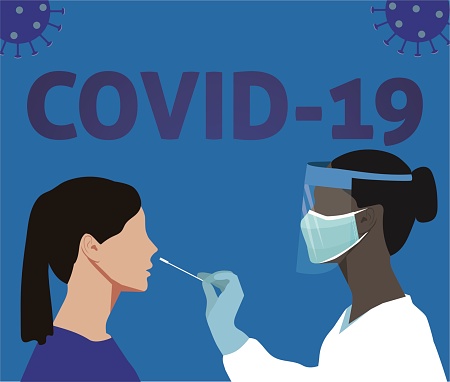It is a great development to have a quick point of care test for flu and coronavirus. It’s highly accurate with speeds that make it simple to use in a clinical or in a hospital setting, as well as being able to identify any instance of either without having patients visit multiple times on different days, which is inconvenient for the most part.
The variety of COVID-19 tests that are available are a vital subject to know. The antigen test is quick however it’s not as precise in determining if someone is suffering from an active infection. There are other molecular and PCR-based procedures that provide additional information on whether someone has been affected prior to. However, they need confirmation of samples taken from patients.
Antigen Tests
Rapid diagnostic tests for coronavirus are able to detect people who are at the peak of infection. They also provide an advantage over tests for antigen. They’re quicker and less expensive! But is there a downside? It’s not always accurate, which can mean you might misunderstand the status of someone’s Degrees even if they had an unknown outcome on their laboratory report.
Coronavirus is a type of virus that infects cells and begins to reproduce. It takes about two weeks for the DNA from the replicase to form part of you. Anti-coronavirus antibodies do not get created until about two weeks after the infection.
PCR/Molecular Tests
It’s not uncommon for people to get confused as to which tests utilize PCR. This method is utilized in all molecular tests for Coronavirus. However it is crucial that only specific types of tests provide precise results due to fact that they depend heavily on the quantity and the type of material that is required for the test. But PCR is often sufficient if you’re reporting on news coverage in which accuracy may be more important than any other method.
The PCR test is the next-generation test in Rapid diagnostics. It offers rapid results for a reasonable price and high precision. There are other speedy tests available, but this test is unique due to the fact that it is able to reduce testing time by orders or hundredfold while remaining 99% accurate; you don’t require any specific or specialized training.
While PCR is among the most common methods to detect DNA, it’s not always accurate. Certain molecular tests have shown false-negative rates that are as high as 15% or even 20 20%.
Antibody Tests
The most popular method to diagnose COVID-19 is by collecting a blood sample and searching for antibodies that your body has produced in response. The tests are not as diagnostic tests, but they could help rule out other possible reasons for chronic illness such as arthritis or lupus that result from shoulder issues.
Scientists will need to have access to samples from individuals who have been infected by COVID-19 virus to create a vaccine. If someone has experienced an active infection in the past or is still positive for antibodies but isn’t showing any symptoms then these can be useful pieces of information to create protection against the spread of infections as well.
For more information, click rapid antigen test with certificate



